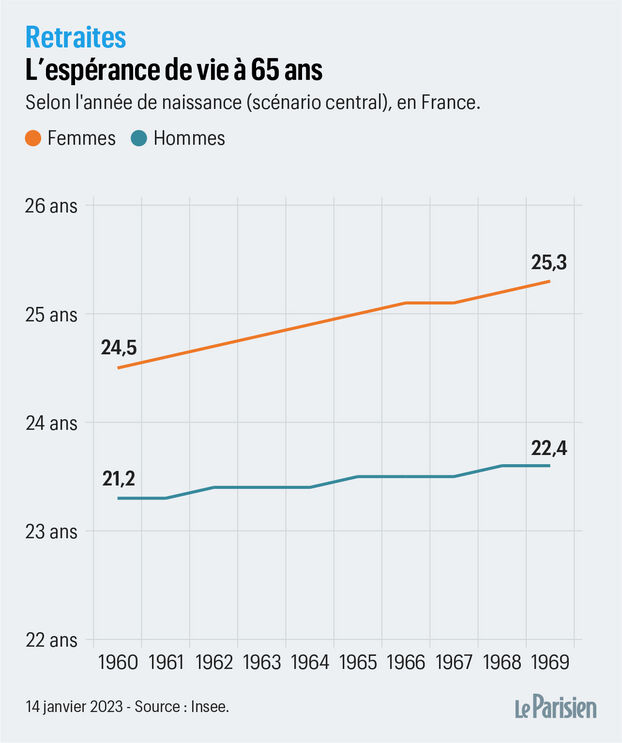Retirement, often perceived as a new stage in life, nevertheless gives rise to many concerns in women. Faced with an uncertain future, many feel a deep anxiety as for their financial situation, to their autonomy as well as their social welfare. The National Council on Aging’s analysis highlights these specific concerns and seeks to understand the underlying factors to this fear. In a society where aging is increasingly present, it is essential to decipher the unique challenges that women face in order to approach this transition with serenity and confidence.
Retirement, a pivotal moment in life, gives rise to many concerns and anxieties, particularly among women. Faced with a future built on uncertainties, it is crucial to explore the emotions and perceptions that particularly affect them. A recent analysis conducted by the National Council on Aging highlights these concerns and raises critical questions about the well-being of this population. In this article, we will address the triggers of these fears, the inequalities encountered, as well as avenues for reflection to transform the approach to this transition.
Sources of worry among women
Women, often confronted with realities different from those of men, feel concerns profound regarding their retirement. The gender pay gap, which often persists throughout careers, can lead to a financial insecurity retired. Statistics reveal that women live longer, but their pensions are on average lower than those of their male counterparts. This situation creates a context of uncertainty which amplifies their anxiety about the future.
Perceptions of aging and retirement
Aging is a complex process, often poorly perceived in our society. Social representations of retirement are often negative, which reinforces the feeling of fear. An analysis of the National Council on Aging report highlights that this perception may differ between genders. Women often talk about the fear of becoming dependent, or even invisible, in a society that values youth.
Inequalities in retirement
Gender inequalities also manifest themselves during the transition to retirement. For many women, career interruptions, often due to family roles such as caring for children or elderly relatives, generate gaps in their professional career. This results in lower pensions and increased vulnerability to aging. Studies like the Libault report highlight these disparities and the urgent need for adapted policies to guarantee a balance.
The right to information and financial education
To appease the concerns and uncertainties, it is fundamental that women have clear information about their retirement. The right to information on retirement, introduced by recent reforms, is crucial. Initiatives like Everything you need to know about home help services Or the essential guide for seniors can serve as valuable resources to arm women in the face of these challenges.
Prevention actions and support
It is essential to consider actions to prevention adapted to help women cope better with aging. Awareness and psychological support programs can not only shed light on the issue of autonomy, but also create spaces for discussion and listening. Encourage aging healthy and active is a priority, as is access to quality health care.
Conclusion: Face the future with confidence
In short, the concerns of women facing retirement arise from a real need for information and an awareness of persistent inequalities. By simplifying access to information and supporting women throughout this process, it is possible to transform these fears into a proactive approach of retirement. By looking to the future with confidence and determination, every woman can hope for a serene, fulfilling retirement full of promise.

The transition to retirement brings up many emotions, and among them, worry, uncertainty And fear are often more pronounced in women. An analysis conducted by the National Council on Aging highlights these concerns. It is essential to understand these feelings in order to approach them with compassion and to be able to offer appropriate solutions.
Health concerns
With age, the question of health occupies a central place in the minds of many women. Fear of losing their independence or having to face health problems major is omnipresent. It is crucial to encourage women to adopt preventive measures throughout their lives, including regular visits to the doctor, a balanced diet and appropriate physical activity. By investing in their health today, they ensure a more peaceful retirement.
Financial uncertainty
There financial security is a source of anxiety for many. Often, women have careers interrupted by family-related breaks, which can impact their pension rights. Good financial planning is essential. Experts should be consulted who can help create suitable strategies. Furthermore, the right to information regarding pensions must be strengthened, allowing women to better anticipate the financial future.
Social and relational fears
Retirement is often seen as a time of isolation. Women fear lose social connection which unites them to their professional environment. To counter this fear, it is recommended to maintain an active social network and participate in community activities. Creating exchange and sharing groups also allows for enriching encounters. Solidarity between women can provide real support.
Act on the living environment
To guarantee a peaceful daily life, it is fundamental to create a living environment adapted. This includes adjustments to their home that promote independence and comfort. An essential guide to better understand these issues and opportunities is available here. These simple changes can help reduce feelings of anxiety related to old age.
Women’s concerns, uncertainty and fear about retirement must not go unaddressed. By implementing proactive strategies, such as health support, financial planning, and encouraging social interactions, it is possible to transform this often dreaded transition into a fulfilling time. Living together longer requires attentive listening and practical implementation of appropriate advice.
Women’s worries, uncertainty and fear about retirement
Over the years, the phenomenon ofretirement age is causing more and more concern, particularly among women. The latter, often faced with socio-economic situations more precarious, express uncertainties considerable in the face of this transition. The analysis carried out by the National Council on Aging highlights specific issues hidden behind legitimate fears and questions that deserve to be carefully considered.
The financial challenges of retired women
Women, on average, have retirement pensions lower than their male counterparts. This disparity is often attributed to career interruptions linked to motherhood and life choices that prioritize family. These choices can lead to financial worry facing the future. Preparing for retirement should therefore be accompanied by financial support and women’s rights education regarding pensions.
Access to clear and transparent information
To overcome these challenges, it is essential that women have access to clear information about their rights and the options available to them to guarantee a peaceful retirement. It is crucial that they are informed of retirement reforms and opportunities that could improve their financial situation. Raising awareness about saving and financial planning early in their career is also a key point in mitigating uncertainties.
Emotional feelings about retirement
The retirement period can lead to feelings of empty andanxiety. Transitioning to a new phase of life without the usual professional structure can be stressful. Women, often seen as the pillars family, may fear losing their central role, which can increase their feelings of loneliness and anxiety about the future.
Look for enriching activities
To help allay these fears, it is recommended to encourage women to get involved in activities that are important to them, whether it is volunteering, creative hobbies or training courses. These activities should promote social connection, essential for a fulfilling life after their professional career and contribute to strengthening their sense of belonging and vitality.
Disparities in perceptions of aging
Aging is not perceived uniformly among women. Many feel social pressure regarding appearance and age-related status. Of the stereotypes negative can influence their self-perception and reinforce their anguish facing retirement. A collective approach that values positive aging must be encouraged to involve all generations and reduce social inequalities.
Essential community support
The creation of support networks within the community can help alleviate these pressures. Open discussions about aging, associated challenges and successes can serve as inspiring examples. By sharing their stories, women can deliver a motivating message to future generations, emphasizing that retirement can also be a time of fulfillment and new experiences.
The transition to retirement is a delicate passage that raises concerns, particularly among women. By investing in practical solutions and fostering dialogue around pension challenges, we can alleviate uncertainty and fear. Together, it is possible to create a conducive environment so that every woman can consider retirement as a new adventure full of promise.







